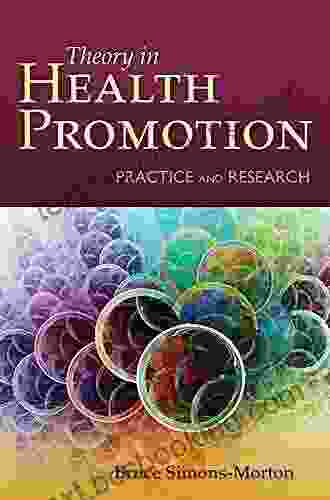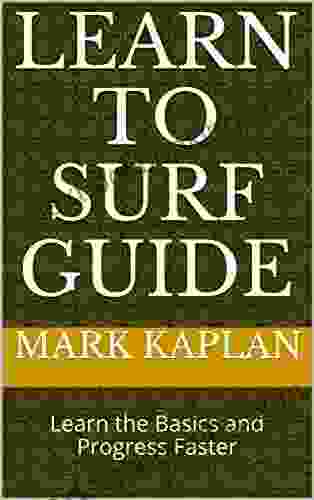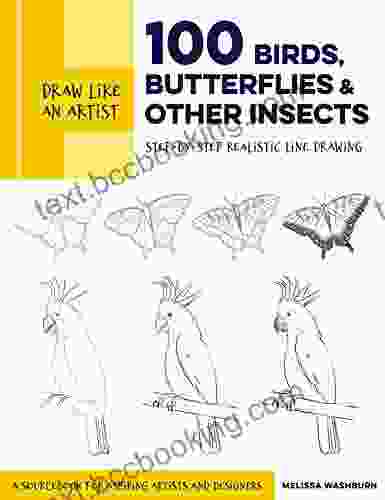Unlocking the Power of Theory in Health Promotion: A Comprehensive Exploration for Researchers and Practitioners

Health promotion, a cornerstone of public health, aims to improve the health and well-being of individuals and communities. To achieve this, researchers and practitioners rely on a solid foundation of theory to guide their interventions and research.
4.5 out of 5
| Language | : | English |
| File size | : | 2216 KB |
| Text-to-Speech | : | Enabled |
| Print length | : | 266 pages |
This article delves into the world of theory in health promotion research and practice, providing a comprehensive overview of theoretical frameworks, application strategies, and the impact of theory on health outcomes. Whether you're a seasoned researcher or a newcomer to the field, this exploration will empower you with the knowledge to effectively harness the power of theory in your work.
Why Use Theory in Health Promotion?
Incorporating theory into health promotion offers numerous benefits, including:
- Improved understanding of health behavior: Theories provide a systematic framework for understanding the complex factors that influence health behavior.
- Targeted interventions: By grounding interventions in theory, researchers and practitioners can develop targeted strategies that are tailored to the specific needs of the target population.
- Enhanced intervention effectiveness: Theory-based interventions have been shown to be more effective in promoting health behavior change compared to non-theory-based interventions.
- Rigorous research designs: Theory provides a foundation for developing rigorous research designs that enable researchers to evaluate the effectiveness of health promotion interventions.
- Dissemination and implementation: Theories facilitate the dissemination and implementation of successful health promotion interventions across different settings and populations.
Types of Theoretical Frameworks in Health Promotion
A diverse range of theoretical frameworks can be applied to health promotion research and practice. Some commonly used frameworks include:
Behavioral Theories
- Social Cognitive Theory: Focuses on the interaction between personal factors (e.g., beliefs, attitudes),social factors (e.g., norms, peer influence),and environmental factors (e.g., access to resources) in shaping behavior.
- Theory of Planned Behavior: Emphasizes the role of intention, perceived behavioral control, and subjective norms in predicting behavior.
- Transtheoretical Model: Describes the stages of change that individuals go through when adopting new health behaviors.
Social and Ecological Theories
- Social Ecological Model: Considers the influence of multiple levels of influence, including individual, interpersonal, community, and societal factors, on health behavior.
- Diffusion of Innovations Theory: Examines the process by which new ideas and behaviors spread through a population.
- Community-Based Participatory Research (CBPR): Emphasizes the involvement of community members in all stages of research and intervention development to ensure community ownership and relevance.
Applying Theory in Health Promotion Research
Effectively applying theory in health promotion research involves several key steps:
- Selecting a Theoretical Framework: Choose a framework that aligns with the research question and the target population.
- Developing a Conceptual Model: Create a visual representation of the relationships between the theoretical constructs and the variables of interest.
- Measuring Theoretical Constructs: Develop valid and reliable measures to assess the theoretical constructs in the study.
- Analyzing the Data: Use appropriate statistical methods to test the hypotheses derived from the theoretical framework.
- Interpreting the Results: Discuss the findings in relation to the theoretical framework and their implications for health promotion practice.
Applying Theory in Health Promotion Practice
Incorporating theory into health promotion practice also requires a systematic approach:
- Selecting a Theory-Based Intervention: Choose an intervention that has been developed based on a specific theoretical framework and has demonstrated effectiveness in previous research.
- Adapting the Intervention: Tailor the intervention to the specific needs of the target population and setting.
- Implementing the Intervention: Faithfully implement the intervention according to the theoretical principles.
- Evaluating the Intervention: Use process and outcome evaluations to assess the effectiveness of the intervention and make necessary adjustments.
- Disseminating and Implementing the Intervention: Share successful interventions with other researchers and practitioners to promote widespread adoption.
Impact of Theory on Health Outcomes
Numerous studies have demonstrated the positive impact of theory on health outcomes. For example:
- A meta-analysis of smoking cessation interventions found that theory-based interventions were significantly more effective than non-theory-based interventions.
- A study using Social Cognitive Theory to develop an intervention to promote healthy eating in adolescents showed significant improvements in fruit and vegetable consumption.
- A community-based intervention based on the Social Ecological Model was found to reduce obesity rates in a low-income community.
Theory is an essential component of effective health promotion research and practice. By harnessing the power of theory, researchers and practitioners can gain a deeper understanding of health behavior, develop targeted interventions, and ultimately improve the health and well-being of individuals and communities.
As the field of health promotion continues to evolve, new theoretical frameworks and applications will emerge. Staying abreast of the latest advancements in theory will enable researchers and practitioners to remain at the forefront of evidence-based health promotion.
4.5 out of 5
| Language | : | English |
| File size | : | 2216 KB |
| Text-to-Speech | : | Enabled |
| Print length | : | 266 pages |
Do you want to contribute by writing guest posts on this blog?
Please contact us and send us a resume of previous articles that you have written.
 Book
Book Novel
Novel Page
Page Chapter
Chapter Text
Text Story
Story Genre
Genre Reader
Reader Library
Library Paperback
Paperback E-book
E-book Magazine
Magazine Newspaper
Newspaper Paragraph
Paragraph Sentence
Sentence Bookmark
Bookmark Shelf
Shelf Glossary
Glossary Bibliography
Bibliography Foreword
Foreword Preface
Preface Synopsis
Synopsis Annotation
Annotation Footnote
Footnote Manuscript
Manuscript Scroll
Scroll Codex
Codex Tome
Tome Bestseller
Bestseller Classics
Classics Library card
Library card Narrative
Narrative Biography
Biography Autobiography
Autobiography Memoir
Memoir Reference
Reference Encyclopedia
Encyclopedia Pauline Dakin
Pauline Dakin Tya Marie
Tya Marie Michael Arndt
Michael Arndt Matt Weiland
Matt Weiland Maxwell Ayrton
Maxwell Ayrton Penn Jillette
Penn Jillette Matt Warshaw
Matt Warshaw Matt Lewis
Matt Lewis Marilyn Grant
Marilyn Grant Martin Gayford
Martin Gayford Sean Monaghan
Sean Monaghan Max Marchi
Max Marchi Melissa Mortenson
Melissa Mortenson Mark Z Jacobson
Mark Z Jacobson Mary Lynn Stewart
Mary Lynn Stewart Tom Logan
Tom Logan Rae Rankin
Rae Rankin Marly Bird
Marly Bird Patricia Cleveland Peck
Patricia Cleveland Peck Matilde Zimmermann
Matilde Zimmermann
Light bulbAdvertise smarter! Our strategic ad space ensures maximum exposure. Reserve your spot today!
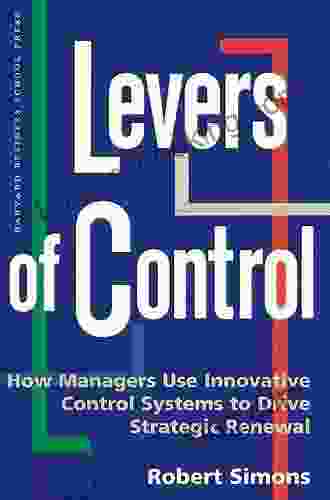
 George R.R. MartinUnleashing Strategic Renewal: How Managers Use Innovative Control Systems
George R.R. MartinUnleashing Strategic Renewal: How Managers Use Innovative Control Systems Todd TurnerFollow ·3.9k
Todd TurnerFollow ·3.9k Isaac AsimovFollow ·10.6k
Isaac AsimovFollow ·10.6k Harrison BlairFollow ·19.8k
Harrison BlairFollow ·19.8k Neil GaimanFollow ·15k
Neil GaimanFollow ·15k Carlos DrummondFollow ·12.6k
Carlos DrummondFollow ·12.6k Quentin PowellFollow ·18.2k
Quentin PowellFollow ·18.2k Mark TwainFollow ·12.5k
Mark TwainFollow ·12.5k Zachary CoxFollow ·19.2k
Zachary CoxFollow ·19.2k

 Larry Reed
Larry ReedGwendy's Final Task: A Thrilling Conclusion to a Timeless...
Prepare to be...
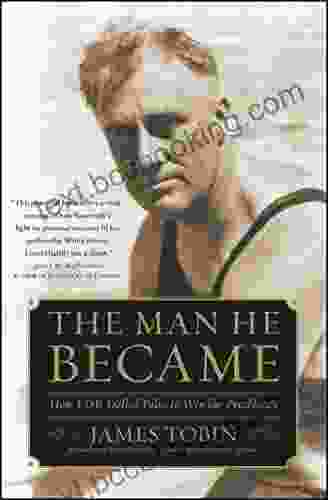
 Victor Turner
Victor TurnerHow FDR Defied Polio to Win the Presidency
Franklin D. Roosevelt is...

 Edwin Cox
Edwin CoxWinner RGS BBC Journey of a Lifetime Award: An Inspiring...
In the heart of the world's...
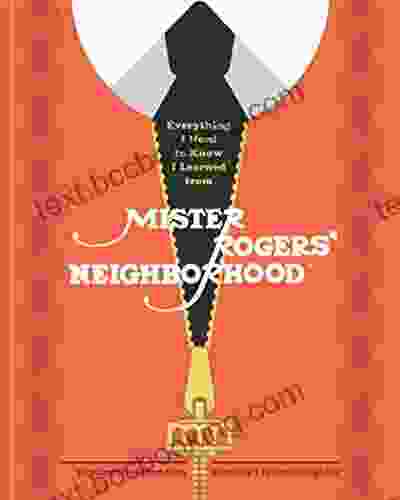
 Griffin Mitchell
Griffin MitchellEverything You Need to Know, You Learned From Mister...
Mister Rogers' Neighborhood was a beloved...
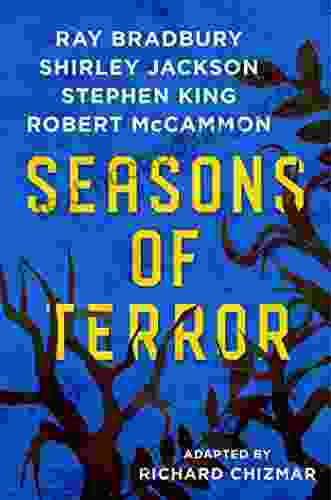
 Beau Carter
Beau CarterSeasons of Terror: A Spine-Tingling Odyssey into the...
In the realm of horror...
4.5 out of 5
| Language | : | English |
| File size | : | 2216 KB |
| Text-to-Speech | : | Enabled |
| Print length | : | 266 pages |


